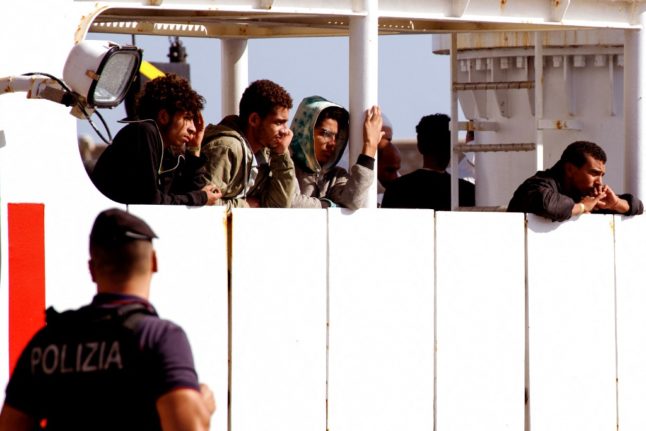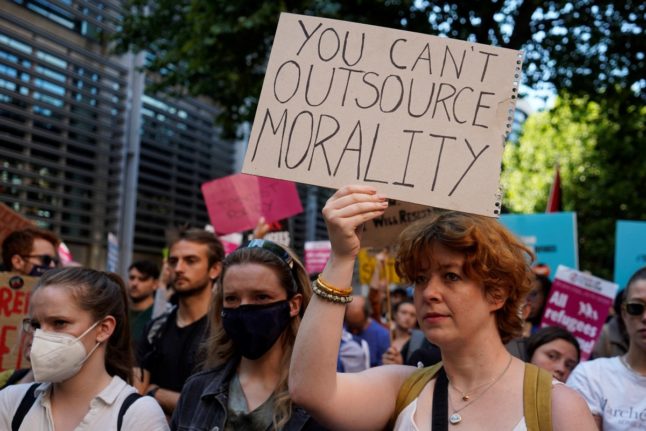The Geo Barents ship has been impounded for 20 days and will be fined between 2,000 euros ($2,100) and 10,000 euros ($10,590), MSF spokesman Maurizio Debanne said.
The seizure took place on Thursday, while Geo Barents was docked in Augusta, Sicily, and came just hours after parliament converted the new government’s controversial decree on migrant rescues into law.
READ ALSO: Italian court rules government’s anti-migrant decree unlawful
Prime Minister Giorgia Meloni, the leader of the far-right Brothers of Italy party, took office at the helm of a coalition government in October after promising to curb the number of migrants landing in Italy.
The new law obliges charity ships to only perform one rescue at a time, which critics say increases the risk of deaths in the Central Mediterranean – the most perilous crossing in the world.
“It’s unacceptable to be punished for saving lives,” MSF said on Twitter, while Debanne said the charity was considering a possible legal challenge.
The seizure and fine follow a complaint by the port authority in Ancona that the Geo Barents “did not provide all the information requested during the last mission”, Debanne said.
The ship brought 48 rescued migrants to safety in Ancona, in the central region of Marche, last week.
Marche has been governed by Meloni’s party since September.
READ ALSO: ‘More will drown’: Italy accused of breaking international law on migrant rescues
Italy’s geographical position makes it a prime destination for asylum seekers crossing from North Africa to Europe, and Rome has long complained about the number of arrivals.
Over 14,000 migrants have landed in Italy since the start of the year, according to the interior ministry, up from just over 5,300 in the same period last year and 4,300 in 2021.
Charities only rescue a small percentage of those brought ashore, with most saved by coastguard or navy vessels.
But the government accuses charity ships of acting as a pull factor and encouraging people traffickers.



 Please whitelist us to continue reading.
Please whitelist us to continue reading.
Member comments